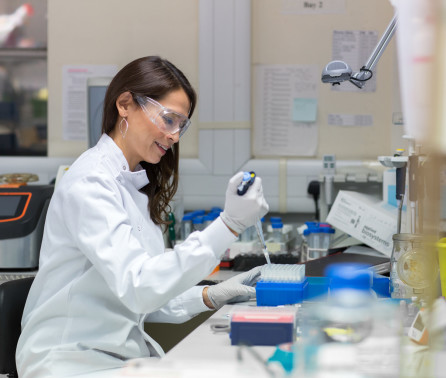The Department of Health and Social Care invested £4M towards CAMO to create state-of-the-art research facilities and to strengthen the UK’s Antimicrobial Resistance (AMR) research capability in:
- Developing innovative approaches to tackling AMR;
- Establishing a body of researchers with a wide range of skills and expertise relevant to AMR;
- Encouraging external funding for AMR research.
CAMO brings together innovative, multidisciplinary research to optimise antimicrobial use and sustain the effectiveness of these drugs in the face of increasing antimicrobial resistance (AMR) and the absence of new treatments.
Our Work
Existing antimicrobials are not being used effectively and patients are typically treated using a ‘one dose fits all’ model which does not account for wide variations in how different bodies process the drug (e.g. in obesity and when receiving other medication at the same time).
To improve patient outcomes and reduce the development of AMR, the CAMO is developing novel technologies which support tailored dosing for the individual, the illness and the infection.
CAMO consolidates existing expertise at Imperial, encompassing research excellence in:
- Infectious disease
- Data science
- Artificial intelligence
- Chemistry
- Biosensor technology
- Bioengineering
Our Partnerships
We work closely with many collaborators. To name a few, these include the NIHR Health Protection Research Unit in Healthcare Associated Infections and Antimicrobial Resistance, Liverpool University, University of Cape Town, industrial partners and the Clinical Research Facility, all with the goal to ensure the delivery of novel solutions, co-designed with end users and patients to optimise antimicrobial use for patient and societal benefit.
March 2022 Opening of the CAMO Facility
Lord Jim O'Neill officially opened CAMO on 8 March 2022. He was given a tour of the facility and demonstrations of the world-class research we do to tackle AMR.





